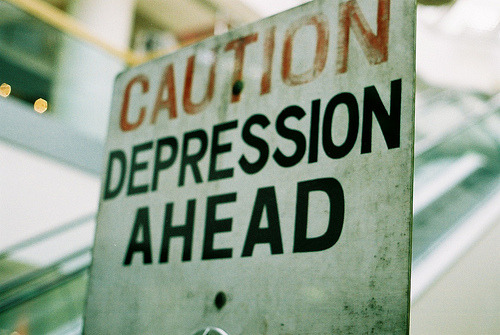
Service puppies in training!!
Miami Herald – Embedded therapists protect National Guard members’ mental health
Roger Duke is a Vietnam veteran, a retired Marine lieutenant colonel and a licensed marriage and family therapist. Since 2006, he’s spent at least one weekend a month embedded with a California National Guard unit. Duke, 57, wasn’t deployed with the unit’s soldiers in Iraq and Kosovo, but he’s a trusted face whom the soldiers confide in before and after their deployments. “Some of the best conversations I have with them are at one in the morning in a Humvee during a training exercise,” said Duke, who’s part of a California program designed to help returning Guard and Reserve members by attaching mental health counselors to their units.
Threadbared – Hanky Pancreas: insulin pump accessories and cyborg embodiment [this post was so nuanced and complex and beautifully written that I hesitate to even do a pull quote because I strongly (strongly) encourage you to click through and read the whole thing]
Floeh’s designs permit wearers to make a strategic double-move around camouflage and visibility, simultaneously hiding the pump and drawing attention to its location (i.e., waist, hip, bustline). When I’m in disability-pride mode, I’m troubled by this kind of hiding, following the logic that visibility is good (i.e., wearing the pump on the outside makes us legible, shows the limits of clothes designed for bodies without peripherals, disrupts conventional, hetero feminine gender presentation) and hiding is, well, hiding, with its affective companions: shame, fear, desire for normalcy, willingness to pass.But visibility is only one tactic among others, and hiding the pump can also be a radical act – especially if it facilitates feeling-good-while-diabetic (for example: the best act in my burlesque repertoire hinges on repurposing a strap-on harness as an under-dress pump-holder; most of the time, my solution to the dress-problem is a jury-rigged system involving a black garter with small cosmetics pouch from Benefit, bra straps, and safety pins to keep things from sliding down my leg – unless I’m already wearing a garter belt). Of course, in the case of hiding or disguising one’s pump, feeling good can also mean feeling closer to a conventional femininity and mythic norm. I don’t want to elide that possibility, but I also return to the reality of living with chronic illness: that we live in a space of contradiction, that we work with what we have & do what we need to do to claim our (sick, cyborg, incurable) bodies as desirable. In my ideal world – one I suspect Floeh wants, too – we’ll recognize that transformation can (and should) mean more than transforming the pump, or the wearer’s relation to it, to align more closely with a dominant, normate feminine ideal. Creating, enabling, accommodating, and celebrating a multitude of diabetic, cyborg embodiments — and advocating for wider access to the pump (with all of its troubling potential) for those who are uninsured and can’t afford the $6000 price tag — these are the kinds of social transformations that need to happen in conjunction with personal ones.
BBC News – Mental health research is ‘incredibly underfunded’
Only 5% of medical research in the UK is into mental health, despite 15% of disability resulting from disease being due to mental illness. Last week, one of the major research funders, the Medical Research Council, published one of the most up to date reviews of the strengths and challenges of mental health research in the UK. It not only showed that the research that does get funded is world-class but that the UK is well-placed to lead the way in this area. The review concludes that there are several opportunities to fund more research in the UK that would help accelerate progress in developing new treatments, or lead to better ways of preventing mental illness in the first place.
7 News Denver – Is Xcel’s Tiered Rate Program A Surcharge On Disability?
Xcel Energy’s new tiered-rate program [for electricity] began Tuesday. Customers whose lives depend on electricity aren’t given an exception. Xcel users who need electricity 24 hours a day to power oxygen tanks or ventilators have to pay the same usage costs as someone who wastefully keeps on their air conditioning.”That’s what the problem is, it’s basically a surcharge for disability,” said Julie Reiskin, executive director of Colorado Cross Disability Coalition.Reiskin told 7NEWS her organization was never notified by the Public Utilities Commission prior to the tiered-rate system decision. The PUC oversees Xcel.”I was shocked we did not know about it,” said Reiskin. “It’s disturbing that the PUC saw fit to get input from Xcel, but not from the people who are directly affected by this.”
A Happiness That Forgets Nothing – You know what? I take back that shit about not hating people.
SO. My brother—my clinically depressed brother—was met by police today. You know why? Because he mentioned to his friends that he had suicidal feelings. So what did they do?
CALLING THE POLICE, TELLING THEM WHERE HE WORKS, AND HAVING HIM HOUNDED BY THEM ABOUT HIS PERSONAL FEELINGS IN FRONT OF HIS COLLEAGUES.
I am in tears right now. Enraged tears.
My brother has a mental illness. But he is still an autonomous, competent fucking person. He can make his own goddamned decisions without alleged friends having him hunted down like a fucking criminal.
[and finally, a mystery in which I ask for your assistance! I have seen several blog mentions of this thing – product? service? – called ‘Buddy’ that has a contract with the NHS and is supposed to help people with disabilities and I cannot understand it! Perhaps you can help?]
Buddy is a post-digital social care service that seeks to improve the well-being of people living with long term conditions, and at the same time, reduce the cost of service provision. At the heart of Buddy is a social media radio which lets users broadcast from a physical device, to a range of social media platforms. By using social networks, Buddy extends the community of carers around an individual beyond healthcare professionals, to friends, families and peers. Our idea is to decentralise and socialise care, creating a more people-powered service, where friends and families are working alongside professionals to support individuals, in real time. Co-production is the jargon.




